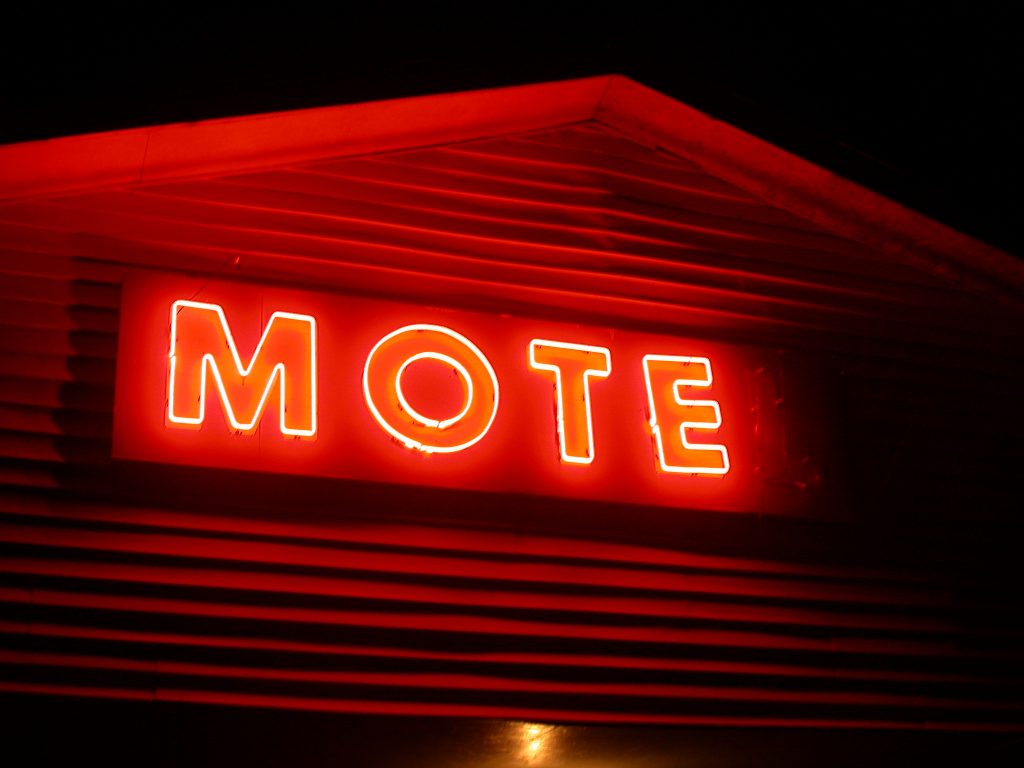 Lawsuits often appear to be complicated and complex, but what many people don’t know is that the outcome of a lawsuit can often be determined by a simple matter of logistics. The who, what, when, where and why of a situation can make the difference between winning and losing a case. For instance, a simple matter of jurisdiction was the deciding factor in a case brought by a South Louisiana man and his wife.
Lawsuits often appear to be complicated and complex, but what many people don’t know is that the outcome of a lawsuit can often be determined by a simple matter of logistics. The who, what, when, where and why of a situation can make the difference between winning and losing a case. For instance, a simple matter of jurisdiction was the deciding factor in a case brought by a South Louisiana man and his wife.
Mr. Leger was injured on a job site at Peoples Moss Gin in Palmetto Louisiana when a conveyor belt ripped apart and struck him. Leger was employed by Rice Belt Distributors, Inc., a company that was hired to install an eighty-foot vertical conveyor belt in a grain elevator. The conveyor belt which was manufactured by International Conveyors Limited, (ICL) an Indian company, and sold to D.E. Shipp Belting Company (Shipp Belting) using ICL America, a wholesaler of conveyor belts, as an intermediary in the transaction. Mr. Leger and his wife, Gwen Leger, brought a personal injury suit against ICL America, Shipp Belting, International Conveyors, and Brown Cranes whose crane and crane operator were handling the conveyor belt at the time of the accident.
ICL raised a declinatory exception of personal jurisdiction, which allows a party to claim that they are not subject to the court’s power. La.C.C.P. art. 925(A)(5). The trial court granted this exception. The Legers, ICL America, and Burlington Insurance all appealed the decision.
 Louisiana Personal Injury Lawyer Blog
Louisiana Personal Injury Lawyer Blog


 Wouldn’t it be a disappointment to have your legal claims dismissed because you missed a filing deadline? The rules that apply to time limits for filing cases can be complicated, as Top Dollar Pawn, Gun and Car Audio #5 in Shreveport, Louisiana found when Top Dollar’s lawsuit was dismissed by the trial court because it was filed after the one-year statute of limitations, the allowed period of time to bring a legal claim, had run.
Wouldn’t it be a disappointment to have your legal claims dismissed because you missed a filing deadline? The rules that apply to time limits for filing cases can be complicated, as Top Dollar Pawn, Gun and Car Audio #5 in Shreveport, Louisiana found when Top Dollar’s lawsuit was dismissed by the trial court because it was filed after the one-year statute of limitations, the allowed period of time to bring a legal claim, had run.  As individuals approach the end of their life or encounter health problems, they may utilize a general power of attorney (POA) in order to care for their property. A POA is a written authorization to represent or act on another’s behalf in private affairs, business, or some other legal matter. The individual executing the POA is the principal and the individual acting under the POA is the principal’s agent. Dealing with a POA can be difficult since it is usually exercised during a stressful period in the principal’s life. Recently, the issue of using a POA was made even more complicated when it stirred up family drama in the Parish of Lincoln District Court after an agent used the POA to transfer all of the principal’s property into his own account days prior to the principal’s death.
As individuals approach the end of their life or encounter health problems, they may utilize a general power of attorney (POA) in order to care for their property. A POA is a written authorization to represent or act on another’s behalf in private affairs, business, or some other legal matter. The individual executing the POA is the principal and the individual acting under the POA is the principal’s agent. Dealing with a POA can be difficult since it is usually exercised during a stressful period in the principal’s life. Recently, the issue of using a POA was made even more complicated when it stirred up family drama in the Parish of Lincoln District Court after an agent used the POA to transfer all of the principal’s property into his own account days prior to the principal’s death.  When a patron is injured by a third party at a hotel, the patron might wish to seek damages from a national franchisor. There are however several criteria to establish a franchisor’s liability making it very difficult for a patron to recover in the absence of direct links between the injury and negligence. In a recent case out of New Orleans, a shooting victim was left with little recourse against the big company behind the local Motel 6.
When a patron is injured by a third party at a hotel, the patron might wish to seek damages from a national franchisor. There are however several criteria to establish a franchisor’s liability making it very difficult for a patron to recover in the absence of direct links between the injury and negligence. In a recent case out of New Orleans, a shooting victim was left with little recourse against the big company behind the local Motel 6.  When employees are fired they can often be entitled to benefits upon termination; including money payments to act as a substitute salary while the terminated employee searches for another job. While there is no federal requirement in the United States for an employer to offer severance pay, many do as it can be an attractive benefit to potential employees. Many employers choose to adopt a plan that falls under the Employee Retirement Income Security Act (“ERISA”). Employers can get tripped up however when they fail to support a denial of severance pay by substantial evidence.
When employees are fired they can often be entitled to benefits upon termination; including money payments to act as a substitute salary while the terminated employee searches for another job. While there is no federal requirement in the United States for an employer to offer severance pay, many do as it can be an attractive benefit to potential employees. Many employers choose to adopt a plan that falls under the Employee Retirement Income Security Act (“ERISA”). Employers can get tripped up however when they fail to support a denial of severance pay by substantial evidence.  In nearly every case of injury to person or property, there is a time period during which you can bring a lawsuit. When that time period ends is determined by statute. Defendants in cases where the time has past may bring an exception of prescription to have these cases dismissed. But how many times and when the exception of prescription may be raised is an issue that took center stage in an automobile accident case from Jefferson Parish.
In nearly every case of injury to person or property, there is a time period during which you can bring a lawsuit. When that time period ends is determined by statute. Defendants in cases where the time has past may bring an exception of prescription to have these cases dismissed. But how many times and when the exception of prescription may be raised is an issue that took center stage in an automobile accident case from Jefferson Parish.  Russell and Tracy Varmall owned a home in Kenner, Louisiana. Their home sustained damages during Hurricane Isaac in 2012. The home was insured by Bankers Specialty Insurance Company (“Bankers”) for wind damage and New Hampshire Insurance Company for flood damage.
Russell and Tracy Varmall owned a home in Kenner, Louisiana. Their home sustained damages during Hurricane Isaac in 2012. The home was insured by Bankers Specialty Insurance Company (“Bankers”) for wind damage and New Hampshire Insurance Company for flood damage.  Sexual harassment in the workplace is unfortunately all too common. While a victim of such harassment might feel entirely justified in filing a lawsuit against his or her employer, the harassing conduct might not be bad enough to survive a motion for summary judgment. Just how bad does a work environment have to be for a harassment victim to have a potentially successful claim? This was the issue in a recent case out of the United States Fifth Circuit Court of Appeal.
Sexual harassment in the workplace is unfortunately all too common. While a victim of such harassment might feel entirely justified in filing a lawsuit against his or her employer, the harassing conduct might not be bad enough to survive a motion for summary judgment. Just how bad does a work environment have to be for a harassment victim to have a potentially successful claim? This was the issue in a recent case out of the United States Fifth Circuit Court of Appeal.  Generally, plaintiffs bring an action against an adverse party to be made whole again in some way. Bringing a claim is a remedy seeking process. But, can a claimant’s inaction cause the proceeding to be dismissed? The Louisiana Fifth Circuit Court of Appeal recently answered this question in the affirmative in a case out of Jefferson Parish.
Generally, plaintiffs bring an action against an adverse party to be made whole again in some way. Bringing a claim is a remedy seeking process. But, can a claimant’s inaction cause the proceeding to be dismissed? The Louisiana Fifth Circuit Court of Appeal recently answered this question in the affirmative in a case out of Jefferson Parish.  In law, deadlines and rules of procedure are very important. Good cases can be lost because someone missed a deadline or did not understand and follow a procedural rule. That is why it is so important to ensure you have a good attorney who understands the rules of procedure and who keeps close track of deadlines, especially those for appeals.
In law, deadlines and rules of procedure are very important. Good cases can be lost because someone missed a deadline or did not understand and follow a procedural rule. That is why it is so important to ensure you have a good attorney who understands the rules of procedure and who keeps close track of deadlines, especially those for appeals.